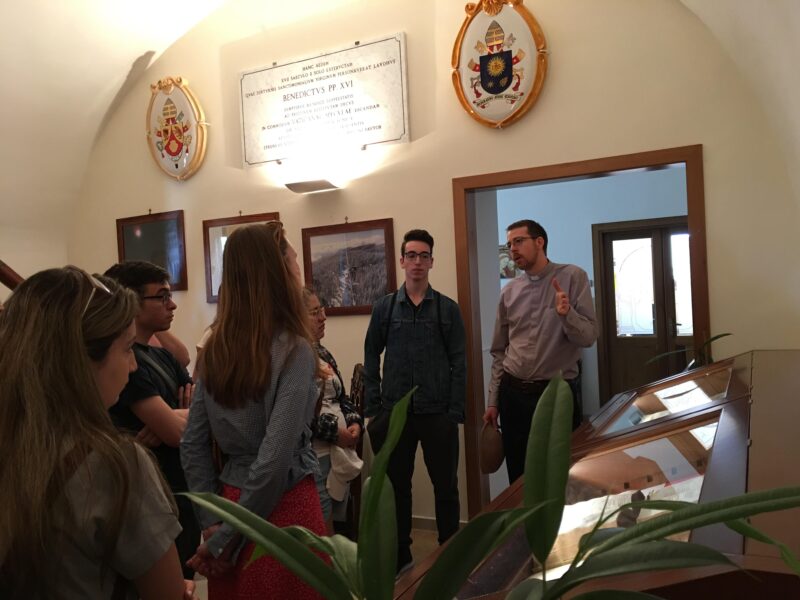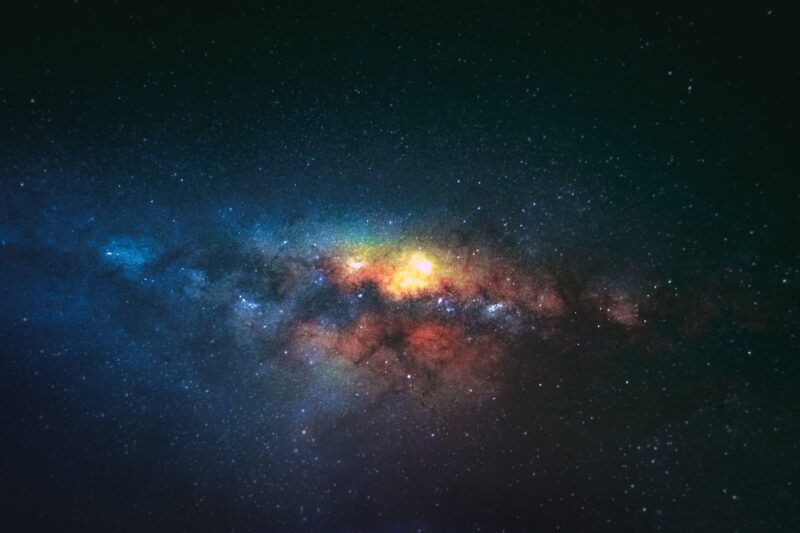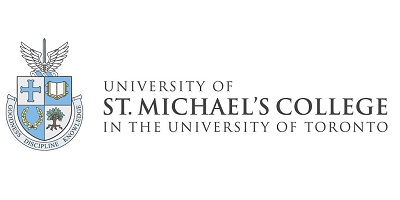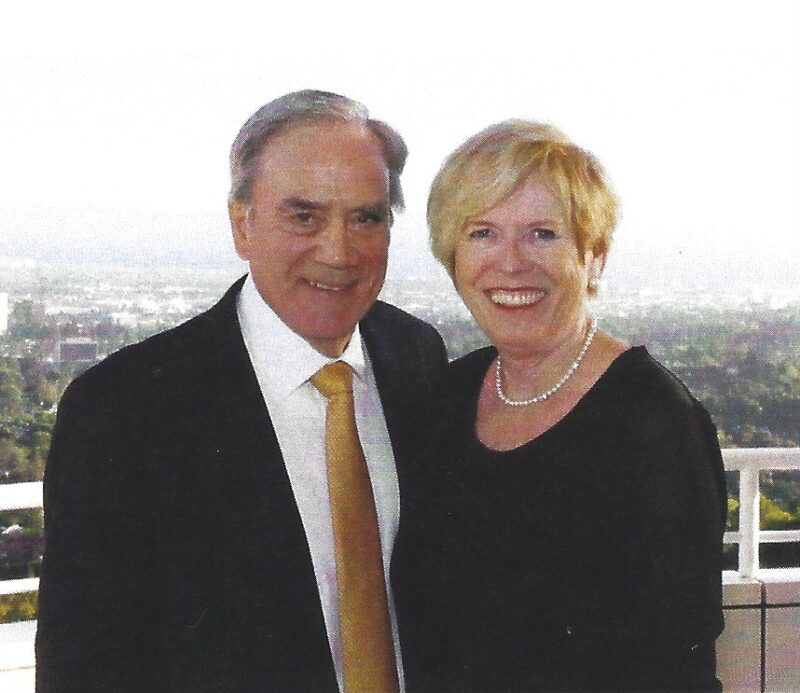Dr. Adam Hincks, S.J., holds the Sutton Family Chair in Science, Christianity and Cultures at the University of St. Michael’s College. Dr. Hincks, who specializes in physical cosmology, completed a B.Sc. in physics and astrophysics from U of T in 2004. In 2009 he earned a Ph.D. in physics from Princeton University and then entered the Jesuit novitiate in Montréal. After pronouncing vows in 2011, he pursued philosophical studies at Toronto’s Regis College and later did a Bachelor of Sacred Theology at Rome’s Pontifical Gregorian University. Returning to Toronto, he worked on a Master of Theology and Licentiate in Sacred Theology at Regis College from 2018–20. He was ordained to the priesthood in 2019.
What Parish Are You At, Father?
“What parish do you live at, Father?” It’s a question I’ve been asked a couple of times since I was ordained last year. The answer—“I’m not based at a parish”—can be unexpected for those who are only used to seeing priests at Sunday mass. The fact of the matter is that most ordained Jesuits are not parish priests, nor have we ever been since our founding in the sixteenth century. The same can be said for those in many other religious institutes, such as the Basilian Fathers who are so important to St. Michael’s College. This doesn’t mean that none of us have parishes—for instance, here in Toronto, Our Lady of Lourdes is served by Jesuit priests and St. Basil’s by Basilians. Nor does it mean that we don’t help out at parishes in various ways. But it isn’t our sole defining ministry.
In my own case, my principal assignment, which I just began in July, is as a professor here at the University of Toronto. To be honest, when I became a Jesuit in 2009 fresh off of a doctorate in physics, I never dreamt that I would come back to the St. George campus, where I had been an undergraduate, as a professor! I figured after the many years of Jesuit formation I would could end up in an academic setting, perhaps at one of the scores of universities we run around the world, but it was only a vague idea.
The position I have begun here is new and unique. Supported by the Sutton Family Chair in Science, Christianity and Cultures, I have an appointment both in the Department of Astronomy & Astrophysics and here at St. Michael’s College. The majority of my research is purely scientific, in the area of physical cosmology, or the study of the Universe as a whole. I work on telescopes that observe the very early universe and that map out the cosmos on its largest scales. But with my training in philosophy and theology, I also have an interdisciplinary interest in how science relates to faith and vice versa. And so a good part of my teaching will be precisely in this area—such as SMC371, “Faith and Physics”, which I shall teach in the winter term of 2021.
Still, one might return to the spirit of the question I began with and frame it a bit differently: why should a priest be engaged in research and teaching at a public university? There is the somewhat facile answer that there have been clerics on faculties ever since the first universities of the West arose in the eleventh and twelfth centuries. The Church has always valued education and the pursuit of knowledge, and thus her clergy and religious as well as her laity have always contributed to these great endeavours. But looking at the question from within the tradition of my own religious order, I am reminded of the notion of “finding God in all things”, a formula often used to capture a key aspect of the spirituality of St. Ignatius of Loyola, our principal founder.
“Finding God in all things” is not a vague aphorism or a flaky aspiration, but is rooted in the deeply Biblical conviction that as Creator, God is intimately present to his creatures, or, as Thomas Aquinas put it, “God is in all things, and innermostly.” This does not mean that if you use a powerful enough microscope (or telescope!) you will suddenly find scientific “evidence” for God. But it does mean that studying creation—whether through the lenses of the humanities, the social sciences or the natural sciences—can be a springboard to contemplating its Creator. “Whatever is true, whatever is honorable, whatever is just, whatever is pure, whatever is lovely, whatever is gracious, if there is any excellence and if there is anything worthy of praise, think about these things” (Phil. 4:8, NABRE). And ultimately, it is “contemplation of divine things” that is one of the principal tasks of those of us in religious life.
So I consider myself blessed to have this opportunity for contemplation, even if the busyness of the job means that I can’t always advert to it! I am looking forward to collaborating with all my colleagues at this university—fellow faculty, other researchers and students—as we lift our minds to consider true and lovely things “worthy of praise.” Not everyone contemplates science from within a religious worldview, and of course there are some who think such a stance is ludicrous. But I’m excited that St. Michael’s College has opened the space to explore it further, and I’m excited to see where it leads. I trust it will make me a better scientist, a better Christian—and a better priest.
Read other InsightOut posts.
June 24, 2020
The University of St. Michael’s College and The University of Toronto Faculty of Arts & Science are pleased to announce that astrophysicist Dr. Adam Hincks, S.J., will be the inaugural holder of the Sutton Family Chair in Science, Christianity and Cultures. The position, jointly supported by Arts & Science and an endowment to St. Michael’s from alumni members Dr. Marilyn and Thomas Sutton, will make a significant contribution to the body of scholarship on the intersection of these three key fields.
Alumni and generous donors to St. Michael’s, the Suttons have long envisioned a position dedicated to examining how Christianity, science and cultures interact and intertwine.
“Marilyn and I are pleased to make this gift of gratitude in support of the distinctive partnership of USMC (St. Michael’s) and U of T. Our education in the Humanities at USMC and Math and Physics at UofT gave us a strong foundation for further education and our professions,” says Mr. Sutton.
The Suttons have found in their own studies that exciting knowledge is found in the spaces between disciplines. The Sutton Family Chair will offer a distinctive opportunity to advance such understanding.
“The inquiries of Science, Christianity and Cultures are informed by intersecting strands of scholarship. This Chair will provide a locus for focused study of those intersections and facilitate the development of new knowledge,” Dr. Sutton says.
Dr. Hincks specializes in physical cosmology, which studies the evolution and overall structure of the universe. In 2004, he completed a B.Sc. in physics and astrophysics from U of T, while also earning the St. Michael’s College Gold Medal for the highest cumulative GPA in sciences for a graduating student. In 2009 he earned a Ph.D. in physics from Princeton University and then entered the Jesuit novitiate in Montréal. After pronouncing vows in 2011, he pursued philosophical studies at Toronto’s Regis College and later did a Bachelor of Sacred Theology at Rome’s Pontifical Gregorian University. Between these studies, from 2013 to 2015, he was a postdoctoral research fellow at the University of British Columbia. Most recently he has been completing a Master of Theology and Licentiate in Sacred Theology at Regis College. He was ordained to the priesthood in 2019.
“As an alumnus of St. Mike’s at the University of Toronto, where I did the undergraduate Astronomy and Physics specialist programme, I’m proud that my alma mater has created this creative position, and I’m delighted to be taking it up,” he says.

Among his various academic affiliations he is an associate scholar of the Vatican Observatory, while his research includes work with the Atacama Cosmology Telescope and the upcoming Simons Observatory, both located in Northern Chile, that are designed to answer fundamental questions about the history and structure of the Universe. In the past, he has also worked on the Canadian Hydrogen Intensity Mapping Experiment in British Columbia’s Okanagan Valley.
“I’m looking forward to continuing my scientific research in a context that also allows me to examine how it enters into conversation with Christianity and culture, both in the classroom and as a secondary research area,” Dr. Hincks explains.
“Dr. Hincks is a stellar addition to a growing group of very fine core faculty at St. Michael’s,” says Dr. Sylvester. “He reflects the caliber of research and teaching excellence St. Michael’s is providing to all University of Toronto students. Dr. Hincks’s work—especially in studying the interrelationships of Science and Christianity and their relationships to a variety of cultures—disproves the frequent assumption that science and religion have nothing positive to gain from encountering each other. We are very glad to welcome him home to St. Michael’s.”
Dr. Melanie Woodin, Dean of U of T’s Faculty of Arts & Science, agrees.
“The establishment of the Sutton Family Chair will advance research and teaching in multi-disciplinary ways that attest to the breadth and depth of the scholarship and learning that takes place in the Faculty of Arts and Science,” Dr. Woodin says. “I am delighted to recognize the generosity of U of T alumni and longtime supporters Tom and Marilyn Sutton. Their investment in this co-located Chair affirms the importance of creative and meaningful collaborations between the Faculty and one of its valued federated colleges, St. Michael’s.”
Dr. Hincks will begin his four-year appointment on July 1, 2020. The David A. Dunlap Department of Astronomy and Astrophysics will host Adam’s graduate appointment in the University of Toronto. In addition to teaching courses for the Department and also for the Christianity and Culture program sponsored by St. Michael’s College for students in the Faculty of Arts and Science, Adam will develop a course to be offered jointly for students in both programs, related to religion and science, in the time ahead.
Marilyn and Tom Sutton are graduates from St. Michael’s class of 1965. Marilyn graduated with a B.A. in English and French, completed a Phd at Claremont Graduate University and is Professor of English (Emerita) at California State University, Dominguez Hills. Tom graduated with a B.Sc. in Mathematics and Physics and is the retired chairman and CEO of Pacific Life Insurance Company.



